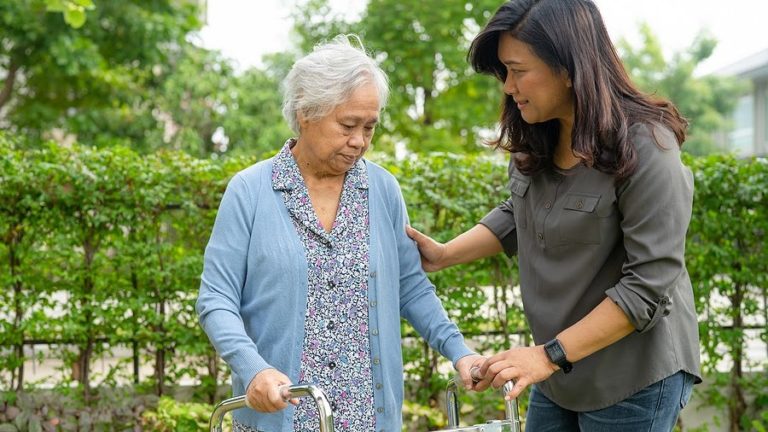The fickle nature of weather events can make it difficult for seniors to go about daily life outside the home. Here are 5 tips for seniors and their families during uncertain times:
1. Make an Emergency Plan
For seniors, having a plan in place when inclement weather strikes is the first step toward ensuring their safety. Some important pieces of that plan include doing the following:
- Establish a support network and communication plan with a primary emergency contact. Know which friends and family are closest and are able to get to the senior’s home in case of emergency.
- Have the contact information of local emergency services such as police, fire department and hospital readily available.
- Keep a list of medications handy so friends and family can easily gather what seniors need in case you have to be moved from your home to safer ground.
2. Put Together an Emergency Kit
We’re not talking band-aids and bottled water (though those items are important, too!) — a well-stocked emergency kit is essential when disaster strikes. Make sure it’s always stored in the same place, which makes it easier to locate when it’s needed.
The Red Cross also suggests putting the emergency kit on wheels so it’s easy to maneuver and labeling it with an ID tag.1 As to what should be included in the kit, three days’ worth of emergency supplies and medical equipment are suggested, including food, water, a battery-powered flashlight, cash, an emergency blanket, a whistle, pet supplies and personal documents. See a complete list.
3. Know Potential Home Hazards
Natural disasters have the potential to do major damage to homes, inside and out. Know where electrical, gas and water shut-offs are — if seniors themselves are not able to access them, they can still point family or care team members in the right direction.
Also, make sure copies of home insurance papers are included in the emergency kit!2 High winds can throw outdoor equipment around yards, damaging landscaping or worse — the home itself. Tie down or contain pieces as possible, or store them in a garage, if available.
4. Have Your Finances in Order
With Social Security payments now electronic, seniors should be prepared for emergencies and ensure all of their account information is up to date. If power or phone lines are down, it can be a challenge to make account changes should there be any hiccups to receiving funds.3
5. Have an Evacuation Route
Meteorological technology today provides the ability to see weather events as they’re developing and accurately predict when they might hit a specific area. This is good news for seniors, who may need help getting out of a storm’s way before it lands. Establish a route to a safer location, whether that’s a friend or family member’s house or elsewhere, including transportation to get a senior from his or her home to the second location.
Emergency Preparedness for Older Adults
Weather events are unpredictable, and it’s important that seniors are well prepared long before disaster ever strikes. Following the tips laid out through this article will ensure the safety of your loved ones no matter what mother nature throws at you.
Resources:

